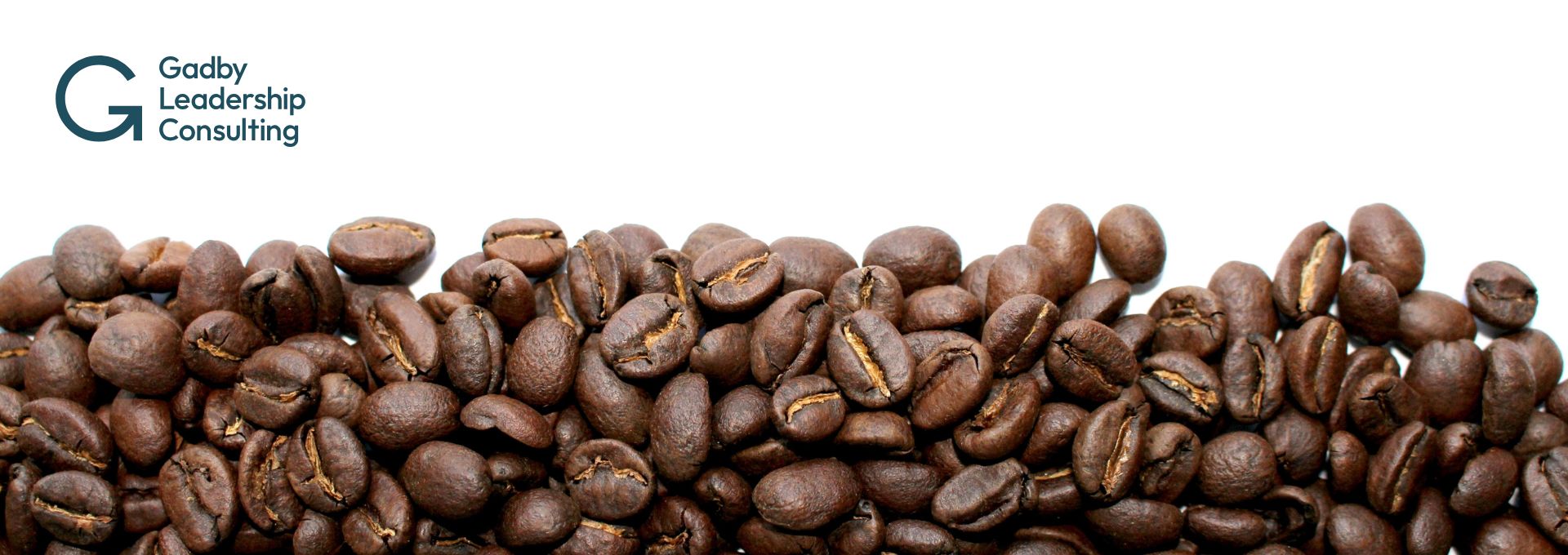
For many of us, the working day doesn’t really start until that first sip of coffee. It’s more than just a ritual – it’s one of the most effective (and legal!) performance enhancers around.
As BBC Radio 4’s The Food Programme recently highlighted, Drs Chris and Zand van Tulleken, joined by Professor Andy Smith from Cardiff University, explored how caffeine sharpens our focus, helps us feel more alert, and supports problem-solving. Forget the “90-minute hack” (sadly debunked); what really matters is using coffee wisely – smaller amounts, spread across the day, and not too late into the afternoon if you want to protect your sleep.
But while coffee may help us as individuals to concentrate and get through the day, sustained performance at work requires more than caffeine. Especially in leadership roles, effectiveness is about how you use your energy, time, and skills to inspire the best in others.
Beyond the buzz: personal effectiveness in leadership
Writing in the Harvard Business Review, Monique Valcour says:
To lead, you must be able to connect, motivate, and inspire a sense of ownership of shared objectives. Heightening your capacity to lead others requires being able to see how you think and act, and how your behaviour affects others.
Someone who is personally effective uses every available resource: their own skills, behaviour and resilience, as well as the abilities of their team. They know how to manage themselves and create the conditions for others to thrive. Their effective leadership leads to higher engagement, better retention, improved productivity and ultimately stronger business results.
In practice, this means:
-
Self-awareness: recognising your strengths and weaknesses, uncovering blind spots and underlying drivers, and understanding how your behaviour influences and shapes the reactions of others.
-
Emotional intelligence: managing your emotions, reading the emotional climate, showing empathy, and fostering trusting, productive relationships.
-
Clear communication: sharing vision and direction in a way that motivates, while also listening and encouraging dialogue.
-
Adaptability: staying agile in changing circumstances, adjusting your style to suit different audiences and situations, and helping teams embrace new challenges.
-
Time and energy management: focusing on the right priorities, delegating well and modelling sustainable working habits.
-
Resilience and influence: bouncing back from setbacks, maintaining perspective under pressure, cultivating habits and mindsets that sustain you through challenges, and inspiring commitment by leading with values and actions.
When leaders model personal effectiveness – balancing focus, resilience and clarity – they set the tone for the organisation.
Coffee as a metaphor
Coffee might be a quick way to kick-start the day, but leadership effectiveness is the sustained energy source that powers teams and organisations over the long haul. Both remind us of an important truth: performance at work isn’t about one-off hacks or bursts of energy, it’s about consistent habits, smart choices, and continual development.
So yes, enjoy that flat white – it will help with focus. But for lasting impact at work, it’s the blend of personal effectiveness and leadership that really makes the difference.
This blog draws on insights from BBC Radio 4’s The Food Programme episode with Drs Chris and Zand van Tulleken and Andy Smith, Professor of Psychology and Director of the Centre for Occupational and Health Psychology, Cardiff University. You can listen to the BBC programme here.
Boosting performance at work goes beyond coffee.
Discover how our leadership development and branding services can help your teams thrive.